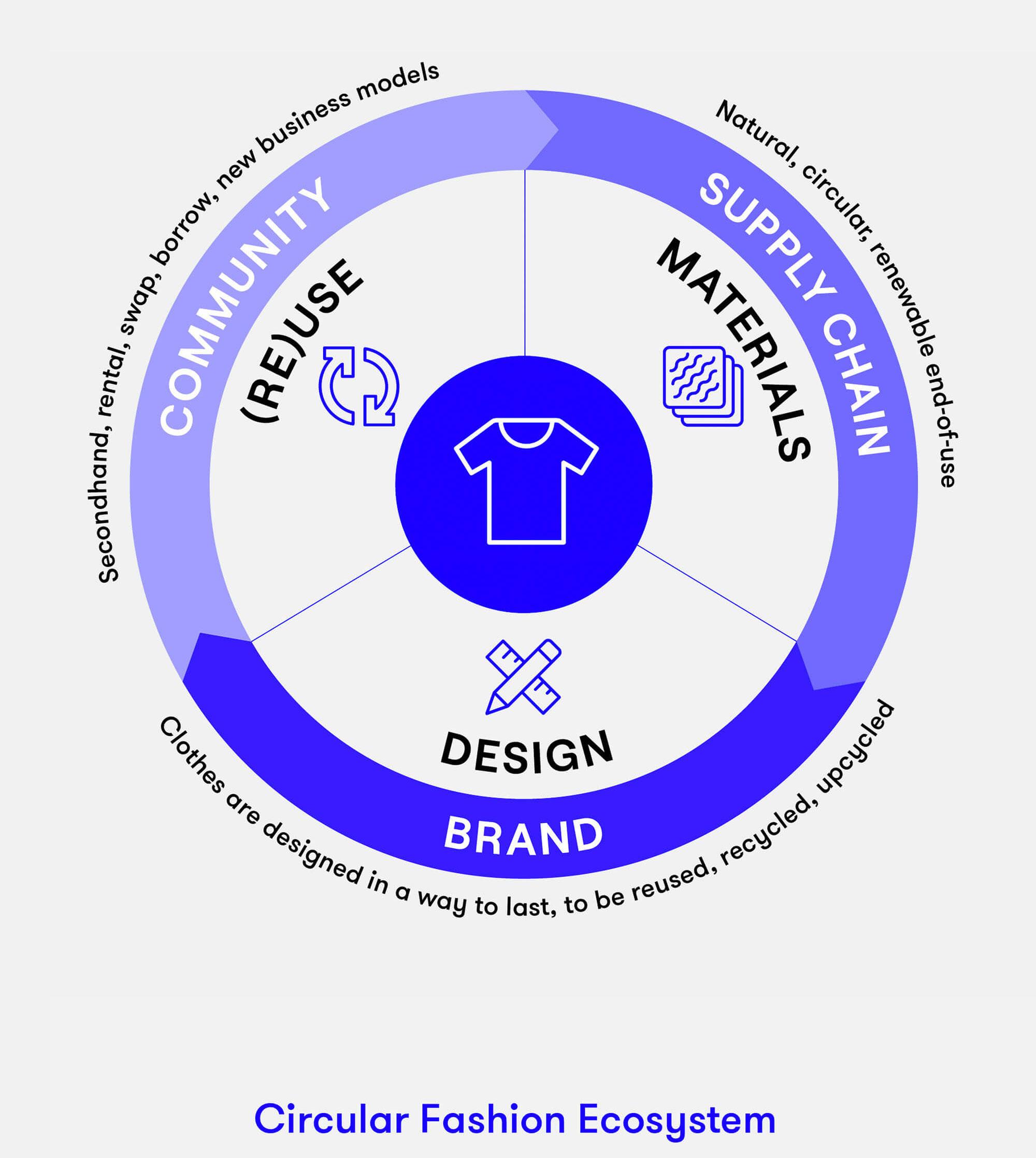
1 minute read
The Sustainable Fashion Industry
Vogue Business, 2020.
McKinsey & Company has predicted in their State of Fashion 2021 Report, that circularity will move from the fashion fringes towards centre stage, becoming one of the key business trends of the next decade. An increasing numbers of policy-makers and consumers are addressing the issue of sustainability within the fashion industry. The rise of fast fashion has left the industry as one of the most polluting, and a collective effort is needed across industry and society to tackle this huge problem. Collaborations between industry partners are becoming more common, enabling businesses to pool resources and audiences.
Brands such as Selfridges are adding circular elements to their core business offerings, including their Resellfridges program, to help normalise sustainable shopping in the minds of consumers (McKinsey & Company, 2021), as well as using the brand’s platform to promote small brands which are focused on changing the industry and views surrounding waste.
There is extensive research and testing happening in the industry, with new materials and ethical processes being developed including Mylo, a mushroom leather which has seen multiple industry figures partner and invest including Kering and Stella McCartney (Stanley, Jack. 2020). Sustainable practices are becoming a baseline requirement for brands, partly due to increased consumer awareness and demand.










